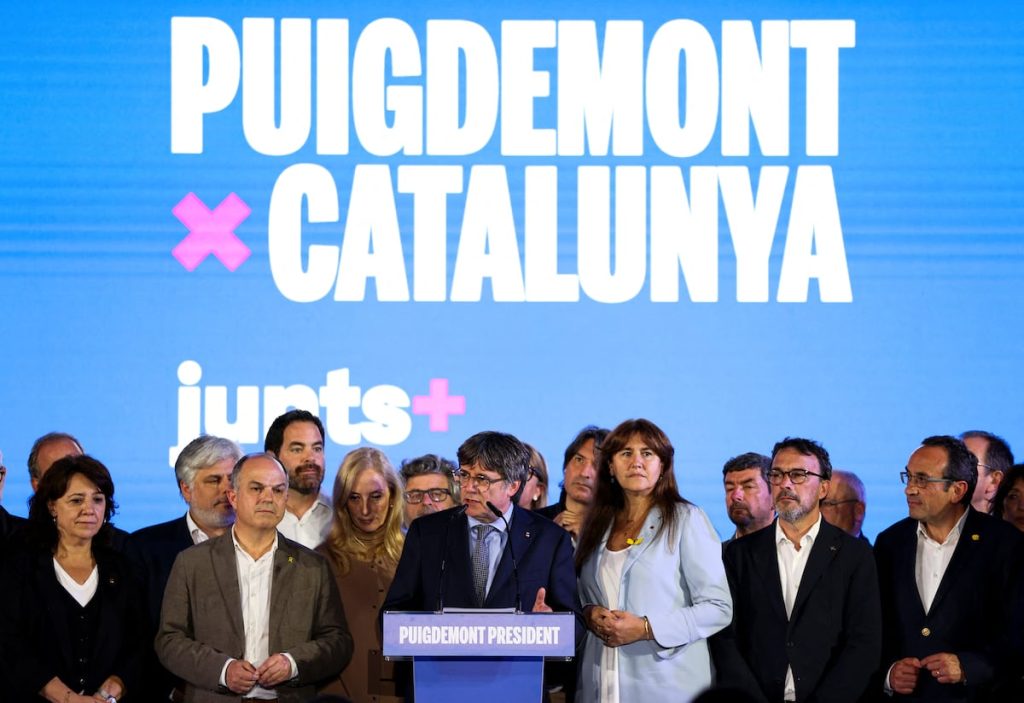Over the past two weeks, the sports center of Argeles has been a time capsule where it was possible to live in the magic of a mythical past. This was made possible by the charisma that Carles Puigdemont has preserved. It was the persuasive force of the liturgy: the repetition of a known code of those who share a faith and gather in an act to feel part of a community defined by an identity that goes beyond politics, beyond ideology. The liturgy began like the demonstrations organized by the Assemblea Nacional Catalana since 2012. A bus would arrive in a capital of a region and elderly faithful would board to go to a place where they could meet people who see the world like them, who share the same system of values, who have a common past. Seeing Puigdemont, they felt that politically what had given more meaning to their lives continued. They took photos with him, repeated slogans from past times, and showed their support with signs.
But the demonstrations of the independence movement were open spaces, while that sports center was an echo chamber where the spirit of the movement was heard. Until this Sunday, when Carles Puigdemont took off the mask of his charismatic character and spoke to evaluate his results. There was no faith, only naked ambition for power. In his speech, accompanied by much of the leadership of his party and many of the members of the new legislature, the magic ended, although it may not have seemed so. For thousands of people, the magic had lasted 15 years and many were happy in that fantasy and would like to continue to be linked to it: it was a utopia that promised to transcend the regional framework through independence to build a new state for a society that could not be more prosperous because it was Spanish. The magic was that narrative and for a good period of time it worked, but the trick was to disguise the traditional goal of the neo-Catalan party: to govern the institution they feel is their own, the Generalitat de Catalunya. That was the sleight of hand and this Sunday it laid all the cards on the table.
“We are in a position to form a government of Catalan obedience,” Puigdemont said. And to preside over it themselves. Because the unhealthy battle with Esquerra Republicana was resolved yesterday. And because Puigdemont made it very clear by establishing a comparison between what happens in the Spanish Congress and what can happen in the Catalan Parliament. If Pedro Sánchez, who was the second, governs there, the same could happen in Barcelona. But the difference is the structural change that occurred in Catalonia. The nationalist majority, for the first time, has ended. The independence movement has ended, his character has ended. What affects most is what happens closer to home. This marked the end of an era in Catalan politics.


